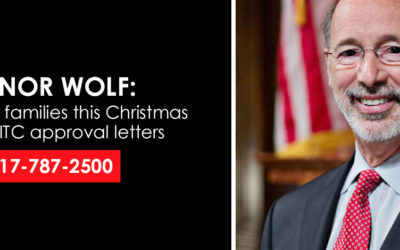Issue
Standards for Explicit Sexual Content in Schools
KEY POINTS
- School Boards are legally permitted to create policy setting standards for preventing age-inappropriate sexually explicit content in their curriculum and library.
- The standard ought not be: “As long as this book doesn’t land us in jail for giving it to a minor, the sexually explicit content is welcome in our curriculum or the school library.”
- Written policy protects students, parents, employees, and the school
and ensures better educational content will fill the finite space in curriculum and in libraries. - Schools should prioritize material that provides rich educational value over material that may provide similar value but also has age-inappropriate sexually explicit content.
- Age-Appropriate policies are not directed at viewpoint and are not banning the book from student possession. They are exercising the schools prerogative to determine what to include in its own library and curriculum.
Standards for Sexually Explicit Content in Schools
Schools must engage in line-drawing for age appropriateness of sexually explicit content in their library and curriculum. Criminal laws are one required line prohibiting schools from giving materials to minors in curriculum or library that a court deems pornographic or obscene. But what about sexually explicit content that does not rise to the extremely high bar of criminal law?
School boards are legally permitted to articulate standards that go beyond “would we land in jail for giving this book to a minor?” to prevent other age-inappropriate sexually explicit content in their curriculum and school library. Unfortunately, many schools have no policy standards for sexually explicit material beyond criminal law.
Schools with written age-appropriate standards for sexually explicit materials that differ for elementary, middle, and high schools protect students and ensures better educational content will fill the finite space in curriculum and in libraries.
But such written policies also protect the school’s staff and district from costly litigation. Even without written policy, a school librarian, principal, or school board is permitted to remove a particular title they deem age-inappropriate sexually explicit material. But with written policy standards, the school is less susceptible to baseless allegations that the title was removed for an impermissible viewpoint discriminatory reason.
School employees still have wide discretion to select and purchase books that comport with the age-appropriate standards in written policy set by the school board, and from that universe of materials, parents then have ultimate authority to make additional age-appropriate determinations for their own child and should have authority to restrict certain titles for their own child.
Individuals who desire to see sexually explicit materials in the hands of minors sometimes argue that such policies are “book bans.” Attempts at labeling common-sense school standards as “book bans” have been rejected by courts. See, C.K.-W. v. Wentzville R-IV Sch. Dist., 619 F.Supp. 3d 906, 909-910 (E.D. Mo. 2022) (“A school district does not ‘ban’ a book when, ‘through its authorized school board,’ it ‘decides not to continue possessing [a] book on its own library shelves.’”) Citing ACLU of Fla., Inc. v. Miami-Dade Cnty. Sch. Bd., 557 F.3d 1177, 1218 (11th Cir. 2009).
A parent, for example, who wants to buy sexually explicit books for their own child to read are not prevented from doing so by such school policies. School policies setting forth its own age-appropriate standards for sexually explicit content in its own curriculum and school library do not even prohibit a student from bringing their own book to school or from reading it in an appropriate time, such as study hall. But school districts do not have to put such explicit books in their own curriculum or in the school library, and such a decision by the school is not a ban on books.
Such policies treat inappropriate sexually explicit content the same regardless of whether the sexually explicit depictions or descriptions happen to be between straight, gay, or even a lone person. As such the argument made by those who desire to see sexually explicit materials in the hands of minors, that these policies are directed at LGBT people, is false.
Too many schools lack baseline standards regarding sexually explicit content in school libraries. Schools ought to spend the finite time in the day on academic excellence, and sexually explicit content detracts from that. Explicit sexual depictions and descriptions may sell, but refusal to purchase it is no ban. Districts can decide not to buy and stock sexually explicit content. If you are a school board member who desires to implement such a policy, we are glad to assist you.

Related Articles
Governor Wolf Preventing Kids in Low-Income Families From Receiving Educational Scholarships
UPDATE - 12/25/15: Gov. Wolf orders release of approval letters. Governor Tom Wolf continues to put Pennsylvania's future in jeopardy by not releasing the approval letters necessary for scholarship aid donations into the state's Educational Improvement Tax Credit...
Gov. Wolf – No Excuses. Release the Letters NOW!
Stop holding our kids hostage & release the EITC letters now: 717-787-2500 Would you want to tell your child they have to go to a different school next year? Not because you're moving. Not because of their grades. All because you don't have enough money to pay...
Governor Wolf Puts Children’s Education At Risk by Blocking EITC Approval
Governor Wolf is hurting thousands of families across Pennsylvania by blocking scholarship award approval letters for the much needed Education Improvement Tax Credit (EITC). It's a sacrifice every year for families who choose private or Christian schooling for their...
10 Answers to Questions on Christmas in Public Schools
It's Christmas season - which not only means Christmas lights and carols but more instances of pushback on any mention of "the reason for the season" or the celebration of Christmas - especially in public schools. Sadly, every school district may not fully understand...
Local Pennsylvania Ministry Wins Case, Can Continue to Bring the Gospel to School Children
Joy El Ministries was within weeks of having their 50-year ministry to school children completely shut down. The Pennsylvania State Police had grounded their buses that were used to pick up school kids for a free, once-a-week religious education off school premises;...
Is it fair to force a school to open girls restrooms to male students?
Many of the concerns with the “Fairness Act”—the proposal that would add “sexual orientation, gender identity, and gender expression” to Pennsylvania's non-discrimination law—may not hit very close to home to a lot of people. After all, only so many Pennsylvanians own...
Threat to Christian Schools is Real
Statements by a State Senator provide clear evidence that Pennsylvania Christian schools are at risk should SB 974 (the so-called "Fairness Act") become law. At issue: What happens when a Christian school dismisses a teacher for engaging in a public act contrary to...
“Today, it’s the baker; tomorrow, it’s the pastor.” Exclusive Interview with NYT Best-Selling Author Dr. Paul Kengor
The following Q&A is an exclusive interview with Professor Paul Kengor on his new book, Takedown: From Communists to Progressives, How the Left Has Sabotaged Family and Marriage, and his views of the recent Supreme Court ruling on same-sex marriage. Interview...




